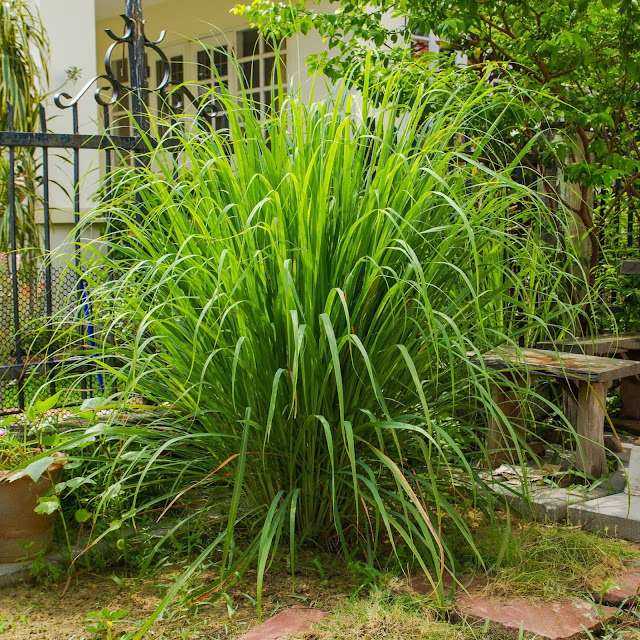What Does Lemongrass Do for Your Health?
Lemongrass, commonly known as citronella, is a tall, stalky plant. It has a citrus taste and a crisp, lemony fragrance. It's a frequent component in Thai cookery and a natural insect repellant. Aromatherapy uses lemongrass essential oil to refresh the environment, decrease tension, and raise the mood. Lemongrass is frequently used as a folk medicine to induce sleep, alleviate discomfort, and strengthen the immune system. Lemongrass tea is one of the most common ways to consume it. Continue reading to find out how drinking lemongrass tea might help you achieve these possible health advantages.
Lemon Grass: How Does It Work?
Some bacteria and yeast may be inhibited by lemongrass. Lemongrass also includes chemicals considered to alleviate pain and swelling, lower fever, enhance blood sugar and cholesterol levels, stimulate the uterus and menstrual flow, and have antioxidant qualities.
Lemongrass Plant Uses and Effectiveness
Inadequate Evidence for
- Dandruff. According to preliminary studies, putting a lemongrass oil solution to the hair improves dandruff in some persons.
- Cholesterol is high. According to preliminary study, consuming lemongrass oil orally did not lower cholesterol levels in persons with high cholesterol.
- Rheumatoid arthritis is a kind of arthritis that affects the joints (RA). According to preliminary studies, putting lemongrass oil to the skin can reduce discomfort in individuals with RA. More study is needed, however, to determine whether this is more than a placebo effect.
- Infection with yeast in the mouth (thrush). Early study shows that drinking lemongrass tea reduces thrush symptoms in persons living with HIV/AIDS.
- Cramps in the stomach and intestines.
- Stomachache
- Blood pressure that is too high
- Convulsions
- Swelling and pain
- Vomiting
- Cough
- Joint pain (rheumatism)
- Fever
- The common cold
- Diabetes
- Exhaustion
- Headache
- Used as an antibacterial and astringent, it can be used
- Other circumstances
What are the Negative Effects of Lemongrass Plants?
When consumed in food quantities, lemongrass is LIKELY SAFE for most individuals. It is Potentially SAFE when consumed by mouth, applied to the skin, or breathed as aromatherapy for therapeutic purposes over a limited period of time. When applied to the skin, lemongrass oil may occasionally produce a rash of skin irritation. However, there have been some harmful side effects, such as lung difficulties after breathing lemongrass and a deadly poisoning after a toddler consumed a lemongrass oil-based insect repellant.
Lemongrass Plant Safety Precautions and Warnings
Because lemongrass has such significant chemicals, you should always check your doctor before using it or any other supplement. Before taking lemongrass or lemongrass tea, consider the following risks:
Skin Irritation
When used topically, lemongrass oil might irritate the skin. If you have an adverse reaction to the oil after applying it to your skin, you should avoid ingesting lemongrass orally.
Concerns About Pregnancy
According to several reports, pregnant women should avoid lemongrass. While there is no proof that lemongrass can produce menstrual flow, there is some risk that it could cause a miscarriage. More study is needed to establish whether or not lemongrass may be consumed safely during pregnancy.
How to Use Lemongrass Plants Effectively?
Start with one cup per day to reduce the chance of adverse effects. You can drink more if you tolerate it well. If you suffer adverse effects, stop drinking the tea or reduce your intake.
To prepare lemongrass tea, follow these steps:
1. Place 1 to 3 tablespoons fresh or dried lemongrass in 1 cup boiling water.
2. Allow at least five minutes for the tea to steep.
3. Remove the tea leaves and strain it.
4. Serve hot or chilled with ice cubes for an iced lemongrass tea.
Lemongrass tea may be found loose or in tea bags at most natural food stores or online. Fresh lemongrass may also be purchased from nurseries that sell herbs to cultivate yourself. Choose organic lemongrass that hasn't been exposed to synthetic pesticides.
Herbs and herbal teas aren't well-regulated, however certain pre-packaged herbal teas are required to fulfill FDA labeling guidelines. Only get herbal tea from a reputed producer you can trust if you want a high-quality, pure product.
If you don't like lemongrass in your tea, try cooking with it. Add a few stalks to your favorite soup – it goes great with chicken noodle soup. It may also be used to season chicken and fish before baking. Lemongrass may be eaten fresh, however it should be minced finely because it is stringy.
\



Comments
Post a Comment